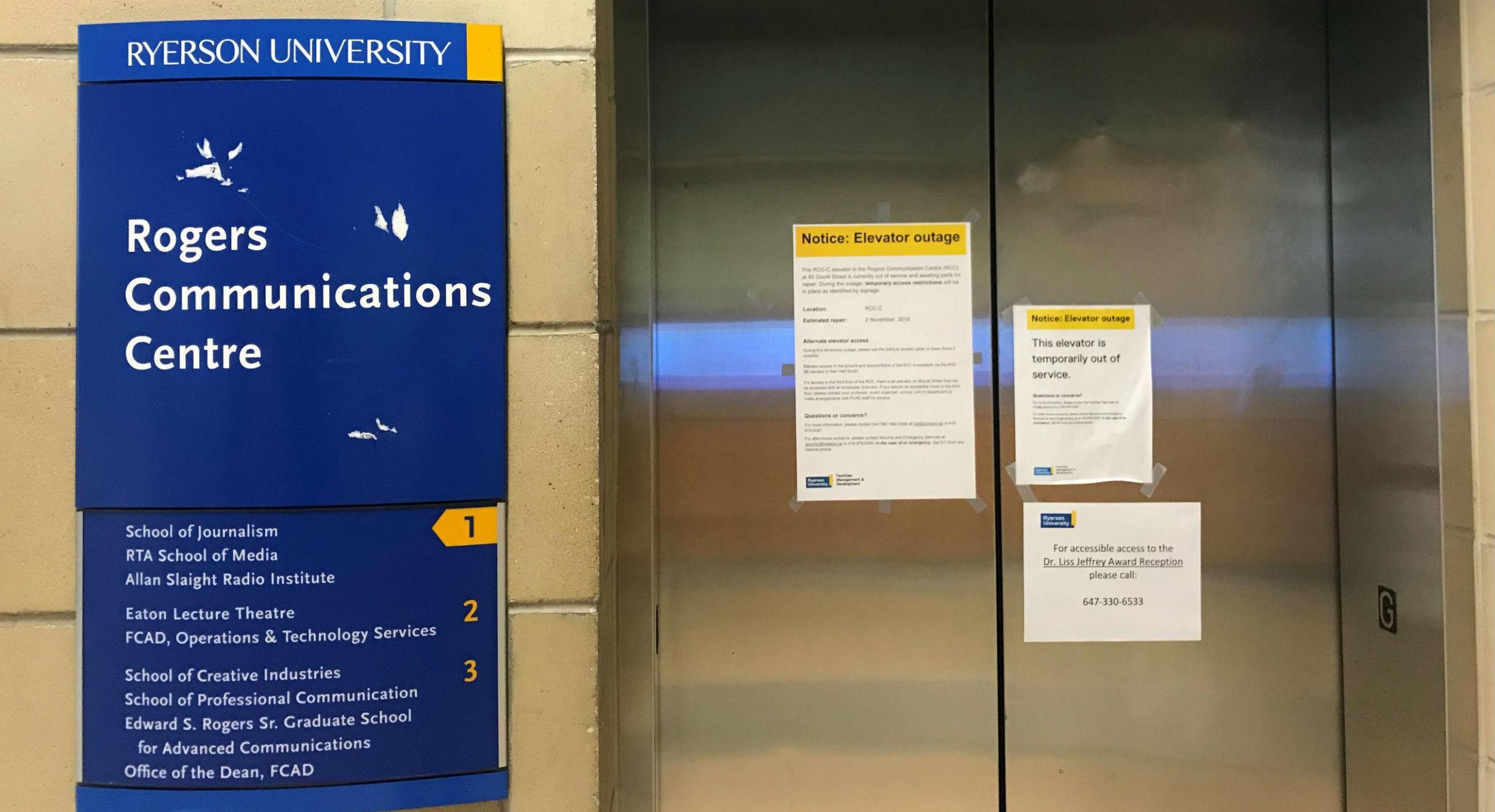By Sara Jabakhanji
Ryerson University community members with mobility needs have had to take a detour to access the upper floors of the Rogers Communications Centre (RCC) since the building’s elevator went out of service over a week ago.
The only public elevator in the building broke down on Oct. 19, due to a motor failure. And the expected two-week outage means any student, faculty member or visitor with mobility needs must use an alternative route through Kerr Hall to access the building.
Without a working RCC elevator, the second floor of the building can only be accessed through the bridge connecting the RCC and Kerr Hall with the Student Learning Centre (SLC) elevator or the Kerr Hall South East elevator.
In order to access the third floor of the RCC, the faculty of communication and design (FCAD) offices in the RCC have a private elevator located on Mutual Street. Students must contact faculty or staff members ahead of time to arrange to use it.
Students should be given a fair warning so they are aware of incidents like these, which may cause obstacles for those with mobility needs, said Matt Vocino, a fourth-year sport media student who uses a wheelchair to navigate campus.
The university needs to give people advance notice so they can make prior arrangements to access certain areas on campus, Vocino said. If he hadn’t passed by the elevator and seen the out of service paper on the wall, he would not have been aware of the inconvenience.
Vocino said he’s lucky he doesn’t have any classes scheduled in the RCC this semester.
“We understand the importance of elevators for accessibility and the challenges it can cause when they’re out of order,” Ryerson’s office of public affairs said in a statement. “We do our best to post timely service alerts, which include alternate routes, through [the] RyersonU Twitter account, and with physical posters surrounding the location.”
The university said the elevator is expected to be fixed by Nov. 2.
Mohammed Malek, co-lead at RyeACCESS, an advocacy and outreach group for Ryerson students with disabilities, said if there had been advanced notice about the outage sent out, Ryerson students with mobility needs could have better prepared.
Malek said Ryerson should ensure students are directly notified about possible barriers that they may face navigating through campus such as construction work or elevator outages. It is not enough that Ryerson facilities management and development notified Ryerson employees about the outage via email, he said. The university should consider directly communicating with students since service outages affect them as well.
“Facilities management is school-wide and should coordinate their efforts and email everybody at the same time,” said Malek.
Vocino wrote about mobility challenges on Ryerson’s campus earlier this year, identifying the most and least accessible buildings on campus.
At the top of his list are Ryerson’s SLC and the Mattamy Athletic Centre, which he said are the most accessible and wheelchair-friendly. The RCC was also among the most accessible buildings, although he said it still pales in comparison to some of the newer buildings around Toronto.
Accessibility does not only pertain to having access to spaces with no barriers, he said, but it also means inclusivity and equal opportunities for any faculty member or student with mobility needs. That includes seating and desks that may be too high for someone who uses a wheelchair or mobility device.













Leave a Reply